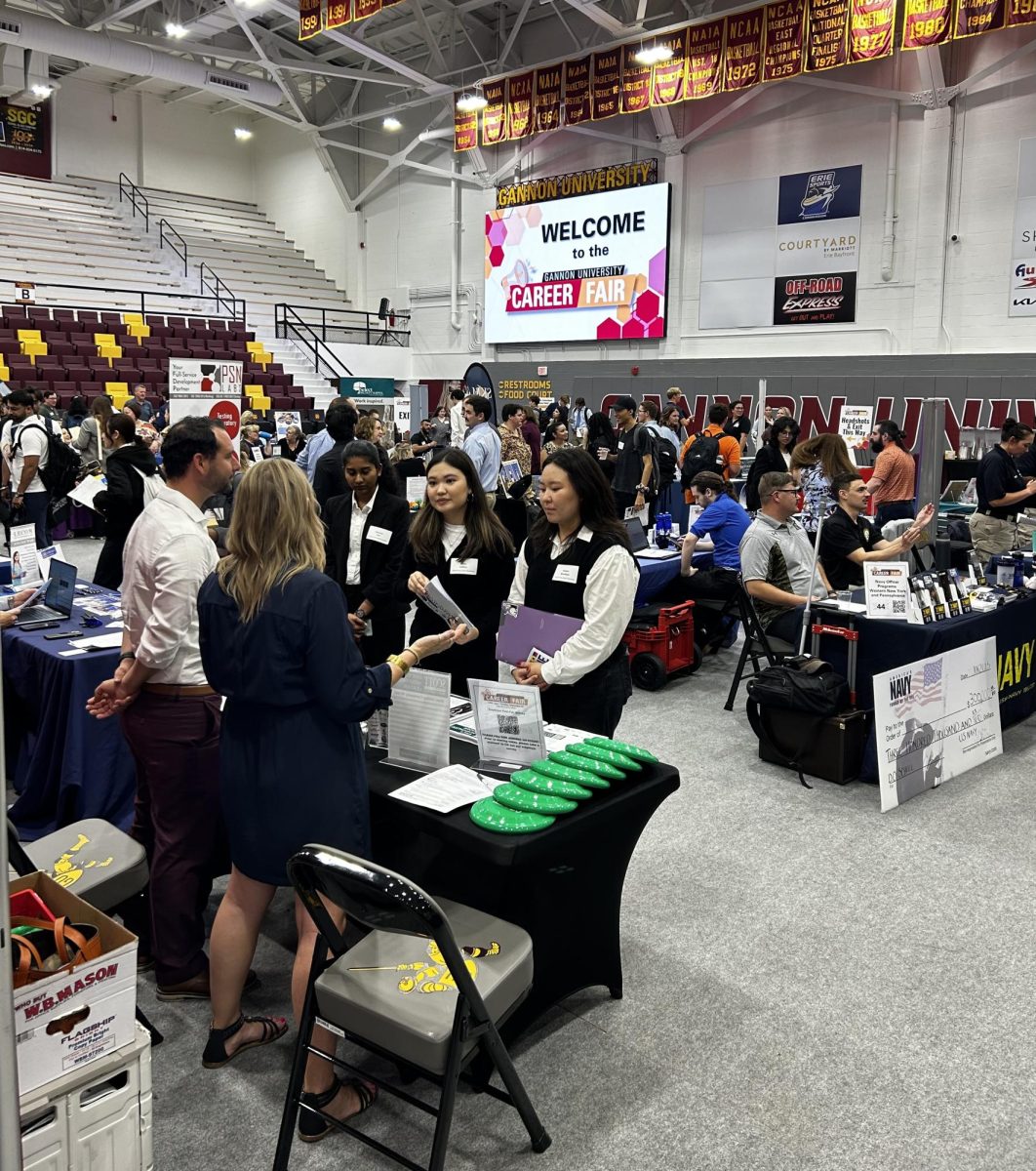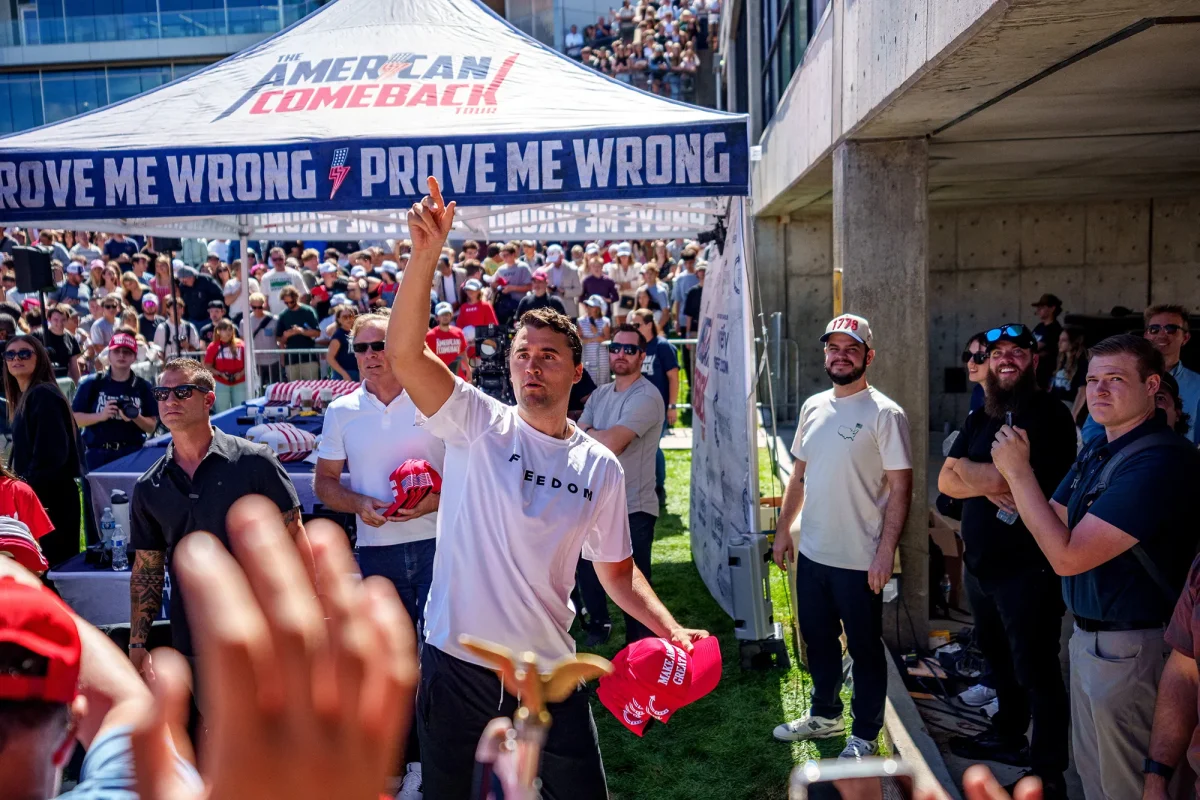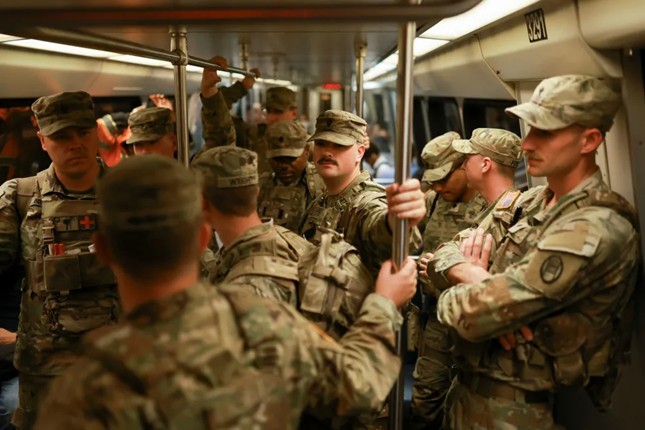Friday marks the 50th anniversary of the assassination of former president John Fitzgerald Kennedy. Born Catholic and of Irish heritage, Kennedy was a wildcard in the White House.
Kennedy’s father, Joseph Kennedy, was America’s youngest millionaire and his goal was to have one of his sons become president. When his eldest son, Joe, was killed in World War II, that baton was passed on to John Kennedy.
As a child, JFK was sickly, spending the majority of his childhood in bed, according to Jeff Bloodworth, Ph.D., who said that the image of Kennedy’s athleticism and vigor was more of an aura than reality. While he didn’t apply himself in school, Kennedy was incredibly intelligent, something that many people often overlook because of the amount of wealth he was born into.
“You don’t just become president because you’re rich,” Bloodworth said.
Being young, Catholic and Irish, Kennedy was proof that immigrants had arrived to mainstream life in America, according to Bloodworth. Back then, if you were either of those two things, you were not considered a full American, Bloodworth said.
Kennedy dealt with much during his presidency until Nov. 22, 1963, when he was assassinated in Dallas.
While Gannon University students have never witnessed the killing of a standing president, there are professors who have and who remember that fateful November day.
Dr. Philip Kelly, an English professor, was 20 years old when JKF was assassinated and was a junior at Mount Saint Mary’s College in Emmitsburg, Md. He was coming back to his dorm from an afternoon class and heard it from a student on his floor who had a television.
Kelly recalls the assassination as incredibly shocking.
“It seemed like a death of innocence – maybe like the effect 9/11 had for a later generation,” Kelly said. “My part of the world was further rocked five years later by the assassination of Martin Luther King Jr. and Robert F. Kennedy. All three incidents shaped my world.”
As for people’s initial reaction to the death of JFK, Kelly said that in his recollection, most people he attended school with liked Kennedy because politics were different back then.
“Politics seemed much less contentious, much less bitter and people seemed more prone to getting along politically,” Kelly said.
However, he described the amount of quarrelsome issues that did occur. The key domestic issue was civil rights legislation and internationally, the United States was dealing with the Cold War. With all of these concerns, he recalls Kennedy handling them brilliantly.
“Kennedy had shown his leadership in both of those arenas,” Kelly said. “I remember I was impressed with him and his work.”
However, not everyone was a fan of Kennedy. According to Kelly, he met a student from Texas the summer after the assassination whose father was in a bar in Midland, Texas, when the assassination was reported on the television. Apparently, people in the bar stood up and cheered when they heard what had happened.
“If that was true, that was a population I didn’t know,” Kelly said. “Maybe the country as a whole didn’t feel as I did about Kennedy and his politics.”
Carol Hayes, an instructor in the English deparment, was also in college but was studying abroad in Europe. She recalled how her Hungarian friends showed her the headline in the paper. Many Europeans felt very sorry and sad for all Americans, according to Hayes.
Hayes is still sorting out how she felt then and now, but that she mostly still does feel empty about the assassination. She compares the incident to an auto accident, how time seems to slow down.
As for the many conspiracy theories out there, Hayes disagrees.
“I think it would be much easier to consider a whole group of people bent on destruction,” Hayes said. “But no. I liken Oswald to one of the school- or movie theatre-killers.
“It is absolutely terrifying to think that one little malcontent can stop an entire society, but I do believe that’s what we have to reckon with.”
John Young, associate dean of the College of Humanities, Education and Social Sciences, was a junior in college when he heard the news of JFK’s assassination. He recalls being in the student lounge reading when someone told him the news.
“For the next few days, TV was the center of our lives,” Young said. “We had lost one of the most charismatic presidents in our history.”
While many say that Kennedy’s life was cut short, his legacy lives on today. For Young, his legacy is mixed.
“He had inspired the young people of the country to get involved, like the Peace Corps and the Domestic Peace Corps, but he hadn’t accomplished much as a president,” Young said. “The stories of his affairs have tarnished his image. But the belief of Camelot stays with us.”
Hayes said she believes Kennedy paved the way for onward thinking, as well as the impression he and his wife, Jackie O., imprinted on Americans.
“I think he and Jackie left a legacy of elegant beauty and the possibility of beauty in America, something that was not always recognized around the world,” Hayes said.
To Kelly, JFK reshaped the way Americans approach politics.
“Kennedy’s legacy for me is that we can dream politically,” Kelly said. “We can imagine a better world and we can work to create it.”
Michael Pouch, a secondary education and history major, said that from the first moments of Kennedy’s presidency, he inspired the American people.
“Kennedy evoked a sense of security, which reassured Americans of their nation’s strength and inspired them to serve their country and the world,” Pouch said.
“He inspired us to go out and make the world a better place.”
SAMMIE JANIK







